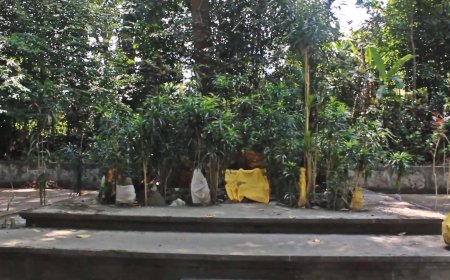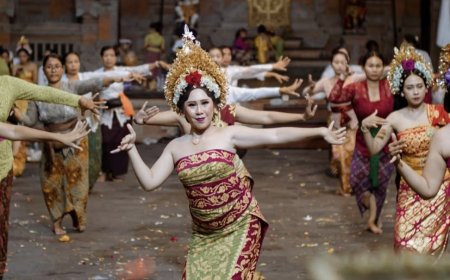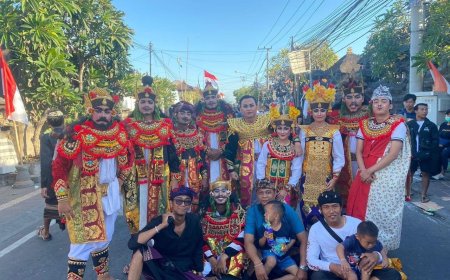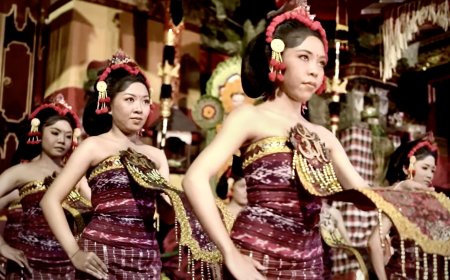Legian Art Market: A Meeting Point of Balinese Culture and Local Creativity
The Legian Art Market is a popular shopping destination in Bali, offering a variety of local arts and crafts. Located in a strategic area near Kuta and Seminyak. The market is open daily from morning until night, providing a convenient shopping experience for tourists. Visitors can find a range of products here, such as traditional fabrics, paintings, wooden sculptures, rattan bags, and antiques.
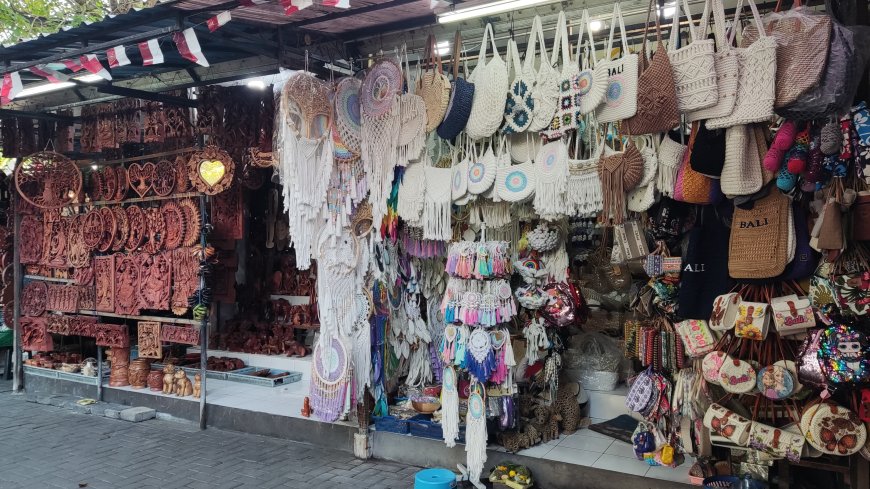
Legian Art Market is one of the most popular shopping spots in Bali, especially for tourists looking for unique souvenirs from the Island of the Gods. Strategically located in the bustling Legian area, known for its nightlife, beaches, and shopping centers, this market offers a wide variety of arts and crafts that reflect the culture and beauty of Bali.
Legian Art Market is situated on the main street of Legian, between Kuta Beach and Seminyak. The area is easily accessible, either by foot if visitors are staying around Kuta, or by public transportation such as taxis and online ride-hailing services. Only a few minutes from Legian Beach, visitors can enjoy the beautiful sunset views and easily explore the market after relaxing on the beach or engaging in activities in the Seminyak or Kuta areas. The combination of shopping and beach scenery makes Legian Art Market a perfect place to spend a day in Bali. The market is open daily from morning until evening, making it a convenient option for tourists who want to shop after enjoying beach activities or visiting other attractions in Bali.
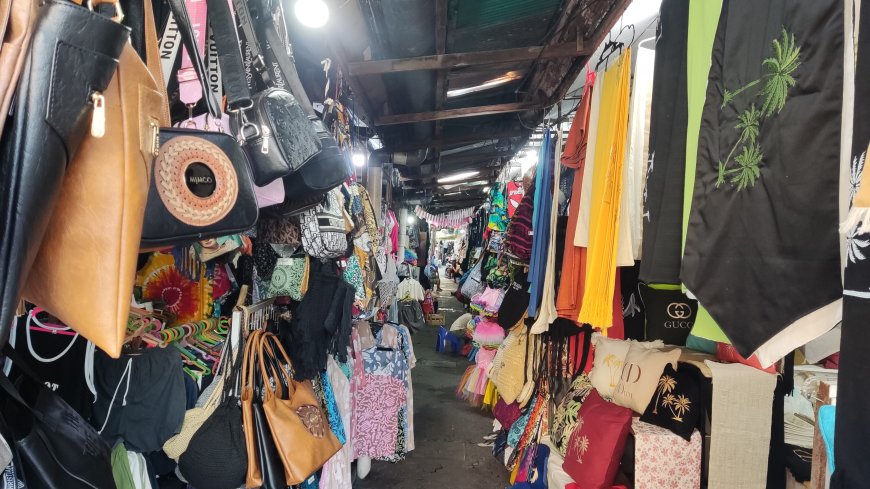
Row of Stalls at Legian Art Market (Source: Private Collection)
At Legian Art Market, visitors can discover a range of unique and interesting Balinese arts and crafts. One of the most sought-after items is traditional fabrics, such as Balinese batik, often worn as clothing. The market also offers a variety of paintings, from traditional Balinese styles depicting natural landscapes and daily life, to contemporary art with a modern touch. Equally captivating are the handmade wooden statues and carvings, showcasing figures like Hindu gods, animals, and mythological characters. In addition, tourists can buy rattan bags, beach hats, and various unique accessories, often crafted by local artisans. Antique lovers will appreciate the selection of traditional masks, kris (ceremonial daggers), and traditional Balinese musical instruments, adding an exotic flair to the offerings.
The presence of Legian Art Market reflects how deeply intertwined art and culture are in the daily lives of the Balinese people. Every item sold in this market has a story, from the crafting techniques to the symbolic meanings behind it. For example, the wooden carvings often found in this market typically depict Hindu mythological figures or sacred elements of nature. Buyers can directly ask the sellers about the philosophy behind these artworks, adding an informative aspect to the shopping experience.
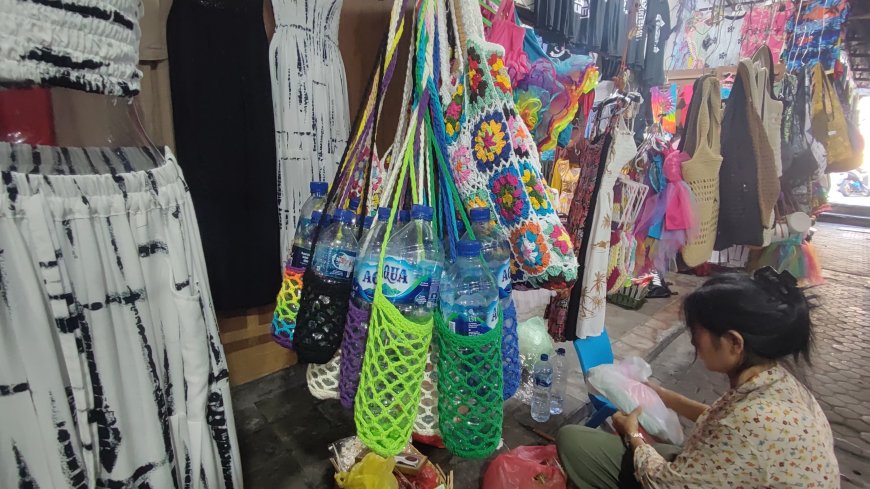
Bargaining Process with Vendors (Source: Private Collection)
One of the exciting aspects of shopping at Legian Art Market is the bargaining process. As a traditional market, visitors are expected to bargaining over the prices of the items they want to buy. This is part of the local culture. With some negotiation skills, shoppers can secure items at much lower prices than initially offered. Bargaining adds an enjoyable interaction between visitors and local vendors.
With increasing awareness of environmental impact, Legian Art Market has also started paying attention to sustainability aspects. Some vendors have shifted to using more eco-friendly materials for their products, such as bags made from recycled materials, bamboo utensils, and natural skin care products. Visitors can also bring their own shopping bags to reduce plastic use and support the eco-friendly movement in Bali. By doing so, not only do visitors obtain quality products, but they also contribute to the preservation of Bali’s environment.
Legian Art Market plays an important role in supporting the local economy, especially for craftsmen and small traders in Bali. Most of the goods sold in this market are handmade by local artisans from nearby villages in Bali. By purchasing products at this market, tourists also help sustain the handicraft traditions that have been passed down from generation to generation. In addition, this market provides employment opportunities for many local residents who work as traders, food vendors, or even tour guides.
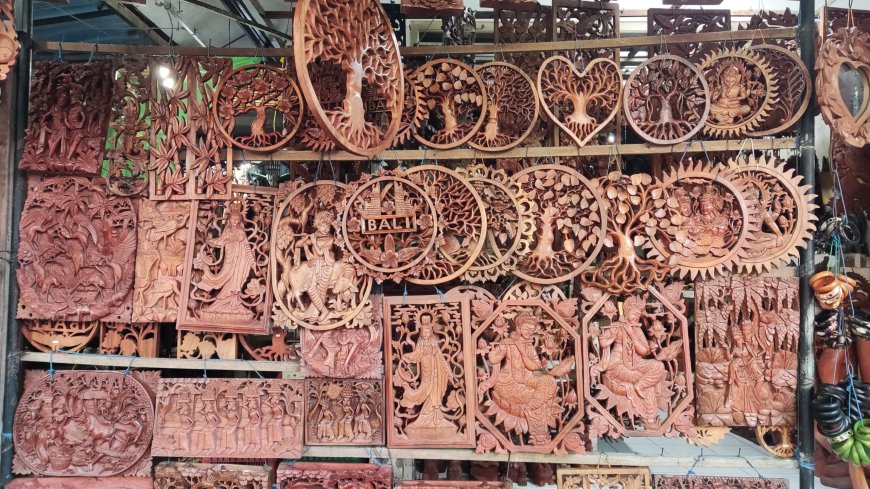
Various Wooden Crafts (Source: Private Collection)
What makes Legian Art Market special is not just the items on sale but also the vibrant atmosphere it provides. Surrounded by the daily hustle and bustle of Balinese life, the market attracts visitors from all over the world. It's not just a place to shop, it’s a great spot to experience the authentic Bali vibe. The vendors are often friendly and more than happy to explain the history or crafting process of the items they sell, adding an educational element to the shopping experience.
Legian Art Market is a must-visit destination for tourists wanting to immerse themselves in Balinese culture through art and craftsmanship. With its lively atmosphere, high-quality products, and strategic location, the market offers not just a shopping experience but a deeper understanding of Bali’s rich cultural and artistic heritage.
